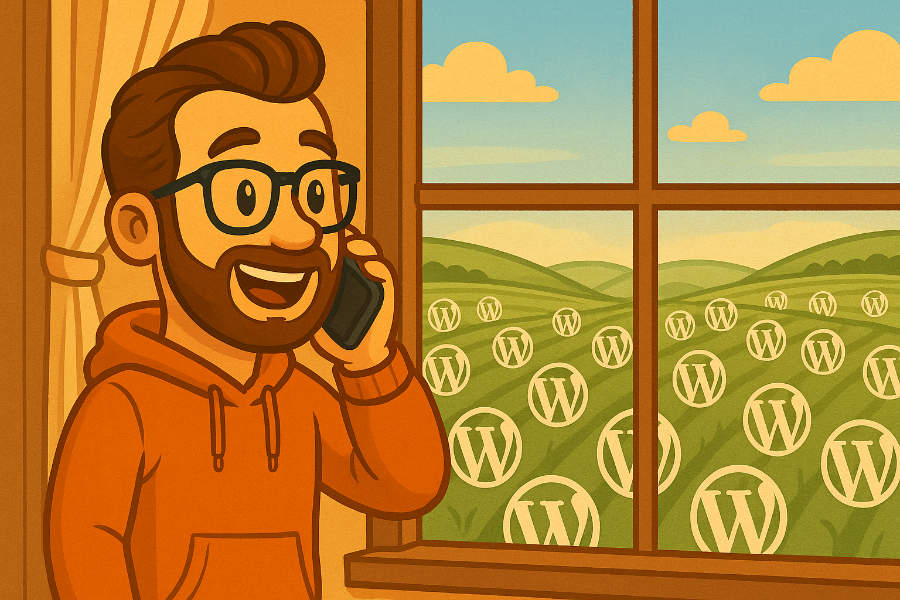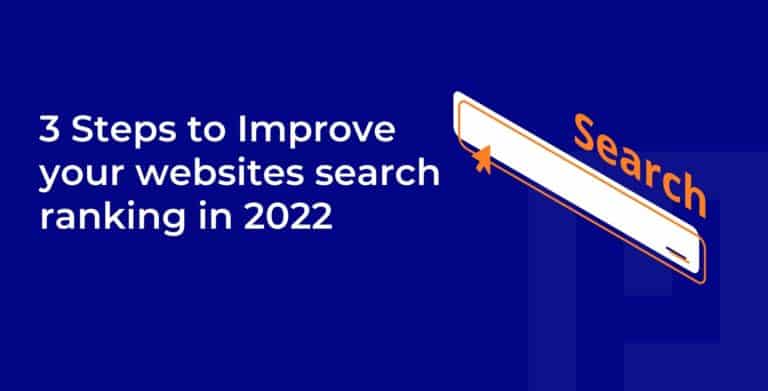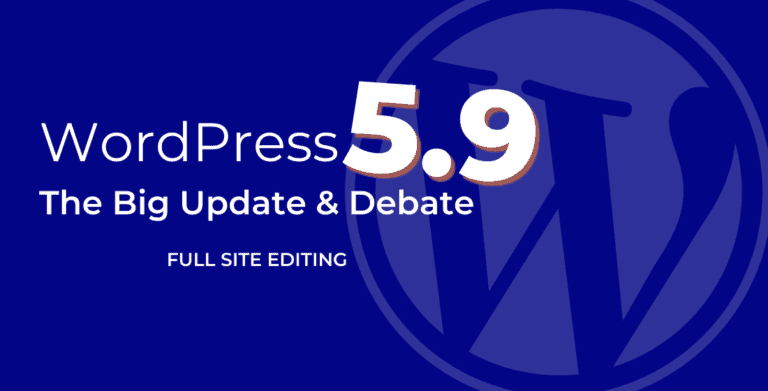I Turned Down a Project Last Week. Here’s Why That Matters to You.
Most web developers would have taken the money and figured it out later. I did the opposite – and it cost me a sale. But here’s the thing: sometimes being honest about what you can’t do is more valuable than pretending you can do everything.
The Lead That Found Me Through AI
Last week, I had a call that caught me completely off guard.
First off, it was my first lead who found me through an AI search engine – not Google, not a referral, but AI. They were on the complete other side of the country too. Quite impressed with that, to be honest.
But here’s what was really interesting: they came to me with a specific tech demand.
Usually, new leads don’t mention technology at all. Sometimes WordPress gets a mention because that’s what they’re familiar with, but that’s it. They trust me to deliver what they need and recommend the right approach.
This one was different.
“It needs to be in Webflow,” she said.
Why I Said No (Even Though I Needed the Work)
Now, I’m 100% WordPress and PHP through and through. That’s what I’ve built my business on for over a decade. I could have:
- Told her I could learn Webflow quickly
- Outsourced it to someone else while charging a markup
- Convinced her WordPress was better and pushed my solution
But that’s not how I work.
Webflow’s meant to be ultra-fast and easy to manage. She’d heard all these brilliant things about it, especially after struggling to update her current WordPress site. She wanted something different, something “better.”
Instead of trying to win the project, we had a proper conversation.
I explained:
- Why I wasn’t the right person for her project
- My honest concerns about Webflow for her specific situation
- The pros and cons of both platforms
- What I’d recommend if I was in her shoes
No pushy sales tactics. No trying to force my solution onto her problem. Just solid, honest advice.
What Happened Next
She asked if I knew any Webflow developers. I didn’t off the top of my head, but I wasn’t going to leave her hanging.
A couple of hours later, I did a LinkedIn search. Could only find someone who worked with Framer (a similar platform), but I shared that contact anyway.
During the school run, I got an email back: she’d spoken to three other developers who’d all shared similar concerns about Webflow. She was rethinking her direction and might be back in touch.
She hasn’t been back in touch. I haven’t chased it.
And you know what? That’s absolutely fine.
The Real Problem Wasn’t the Platform
Looking back, I think this was a case of someone being let down by their original WordPress developer – either poor delivery or inadequate training on how to use their site.
That’s given WordPress a bad reputation when it’s not really WordPress’s fault.
With AI changing everything and new platforms emerging constantly, it’s easy to think the grass is greener elsewhere. You see flashy marketing about how “easy” and “modern” these new platforms are.
WordPress is 22 years old (started in 2003) and runs over 40% of the internet. But you’ve also got Webflow, Framer, Shopify for e-commerce – they all work for different people and business models.
The truth?
None of them are necessarily “better.” It’s about finding the right person who can make your business life easier, regardless of the platform.
What This Actually Means for You
If you’re thinking about a new website or redesigning your current one, here’s what matters:
The platform isn’t your problem. The relationship with your developer is.
When someone comes to me wanting a specific technology without understanding why, it’s usually because:
- Their previous developer didn’t explain things properly
- They weren’t trained on how to use their current site
- They felt ignored or talked down to when asking for help
- They never received ongoing support
A good web developer should:
- Explain your options in plain English
- Recommend what actually fits your business, not just what they prefer to build
- Be honest when they’re not the right fit
- Help you find someone better if they can’t help
Sometimes being honest costs you a sale. But it’s always the right thing to do.
And for the clients I do work with? They know I’m not going to bullshit them or recommend something just because it’s easier for me.
Common Questions About This
Should I stick with WordPress or switch to something newer?
It depends on your business, not the platform. WordPress runs 40%+ of the internet because it’s flexible, well-supported, and has a massive community. But that doesn’t mean it’s right for everyone. A good developer will look at your actual needs – how often you update content, your technical comfort level, your budget for ongoing support – and recommend what fits. The platform should work for you, not the other way around.
How do I know if my current developer is any good?
Ask yourself: Do they respond when you need help? Do they explain things in language you understand? Have they trained you properly on how to use your site? If you’re answering “no” to these questions, the problem isn’t your website platform – it’s your developer relationship.
Is it worth switching platforms if I’m frustrated with my current website?
Sometimes yes, sometimes no. Often, frustration comes from poor setup, lack of training, or missing features – all fixable without a complete platform change. Before switching, get a second opinion on whether your current site can be improved. A platform migration is expensive and time-consuming. Make sure it’s solving the actual problem, not just treating symptoms.
Want an honest opinion on your website? I offer free website video reviews with no-nonsense feedback on what’s working and what could work better. Get your free review here.






